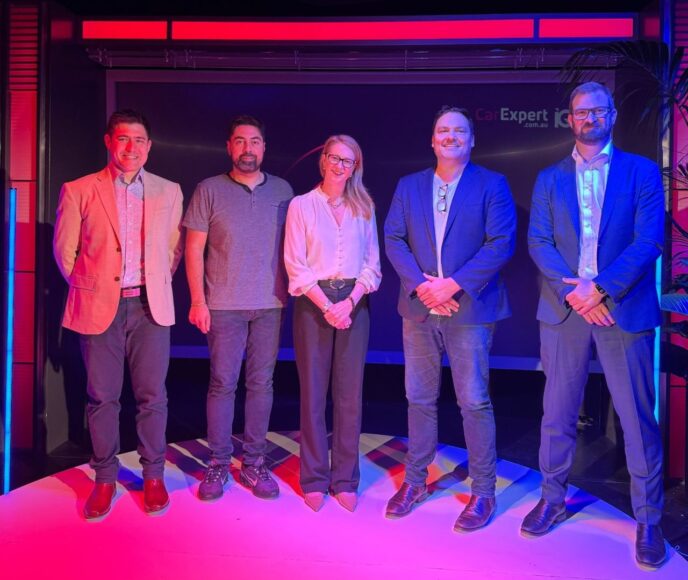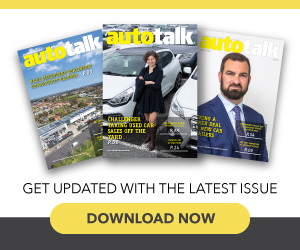
EV enthusiasm is on the wane; new car buyers have longer shopping lists but are making quicker purchase decisions, and a single test drive can be the defining moment for buyer and seller groups, according to CarExpert IQ.
As brand competition heats up, 2025 will be a “fierce and fascinating year” for the Australian new car space.
These were among the insights revealed during the launch of CarExpert’s annual Road to Purchase report, presented during a livestream with 250 attendees from 200 automotive companies.
CarExpert’s independent consumer research conducted by Nielsen delves into buyer behaviours, brand preferences, and market trends, offering valuable insights into modern consumer decision-making.
CarExpert.com.au chief executive Damon Rielly hosted the launch event. It featured a panel headlined by Australian Automotive Dealer Association (AADA) chief executive James Voortman and CarExpert co-founder Alborz Fallah, with key findings presented by Nielsen Australia’s Head of Publishers and Platforms Kirsten Riollo.
EV enthusiasm is slipping.
Contrary to expectations, receptiveness to Electric Vehicles (EVs) has declined. Nearly one in six buyers now say they are closed to the possibility of an EV as their next vehicle, compared to only one in eight last year.
The research showed that 65% of Australian respondents cited insufficient charging infrastructure as the primary barrier to EV adoption.
Range, price, and depreciation were also significant concerns, with 53% and 48% citing these issues. While 46% expressed potential future interest in EVs, 24% raised additional concerns about fire risks, environmental impact, battery life, and costs.
Surprisingly, the industry is not so concerned with EV challenges. An instream poll indicated that EV adoption and the New Vehicle Efficiency Standard (NVES) were the bottom two concerns for 2025.
The AADA emphasised the need for home charging infrastructure to address buyers’ reservations.
“We need to start talking about home charging. Those are the customers we need to service. First, those who can charge at home,” Voortman says
“If you look at all the government incentives in this space, it’s all-around public charging.
“What we are doing, more than anything, is ensuring that people can charge their vehicles at home, including doing things like investing in retrofitting these apartment buildings,” he says.
Key findings
The Road to Purchase research revealed several key findings around research and purchase behaviour, new car buyer demographics, and vehicle ownership patterns.
New car buyers, for example, have a longer shopping list but spend a shorter time identifying and buying their next new car:
• The average number of cars considered has risen 13% to 2.9.
• 49% now consider three or more vehicles – a 12% increase from last year.
• Buyers continue to invest significant time, spending three to four months researching their purchase decision.
• Fewer than 1 in 3 new car buyers start the research process knowing exactly what they want.
Riolo says that brand price and reliability are the most critical factors, such as safety, efficiency, and styling, but the test drive was crucial in the purchase process.
“Buyers are taking 2-3 test drives on average, though intenders expect to take more,” Riolo says.
“But it’s worth highlighting that 27% of new buyers needed only one test drive, so it’s a pivotal stage for the buyer and seller because some of those decisions can be made instantly.”
Demographics also play a clear, identifiable role with new car buyers demonstrating distinctive characteristics:
1. Global Mobility:
- 1.6x more likely to be international travellers
- 52% have or are planning to travel overseas in the last/coming 12 months
2. Economic Profile:
- 32% higher incomes compared to used car buyers
- 1.5x more likely to have a household income over $150,000
- 26% more likely to have recently bought or sold a house
3. Vehicle Ownership Patterns:
- 56% expect to own their vehicle for under five years
- More likely to regularly renew their vehicle
The year ahead:
At the end of the event, CarExpert co-founder Alborz Fallah was asked to share his outlook for the year ahead.
“I think next year is going to be the most exciting year in the Australian Automotive landscape,” Fallah says.
“There are going to be so many new brands and manufacturers, including ones I haven’t even heard of, it blows my mind.”
Fallah noted that the competition in the marketplace will be fierce and fascinating.
“It’s going to be very exciting to see how those brands establish themselves while, at the same time, those more established brands manage to survive and continue to keep their market share. I’ve learnt this year that consumers are willing to look at other brands they may not have been willing to look at previously.”
“2025 is shaping up to be the most competitive in the Australian new car space we have ever seen,” Rielly says.
“What we do know is that having the freshest insights into what is driving new car buyer behaviour gives each OEM and each dealer the foresight needed to adapt to those wants and needs and succeed,” he says.
Rielly says the industry has long needed a partner capable of providing regular, consumer-led insights, particularly at the top of the automotive purchase funnel.
To address this gap, CarExpert launched CarExpert IQ, a new insights division dedicated to comprehensive market research on behalf of the automotive industry.
The catch-up video and full presentation are now available to view at iq.carexpert.com.au.








